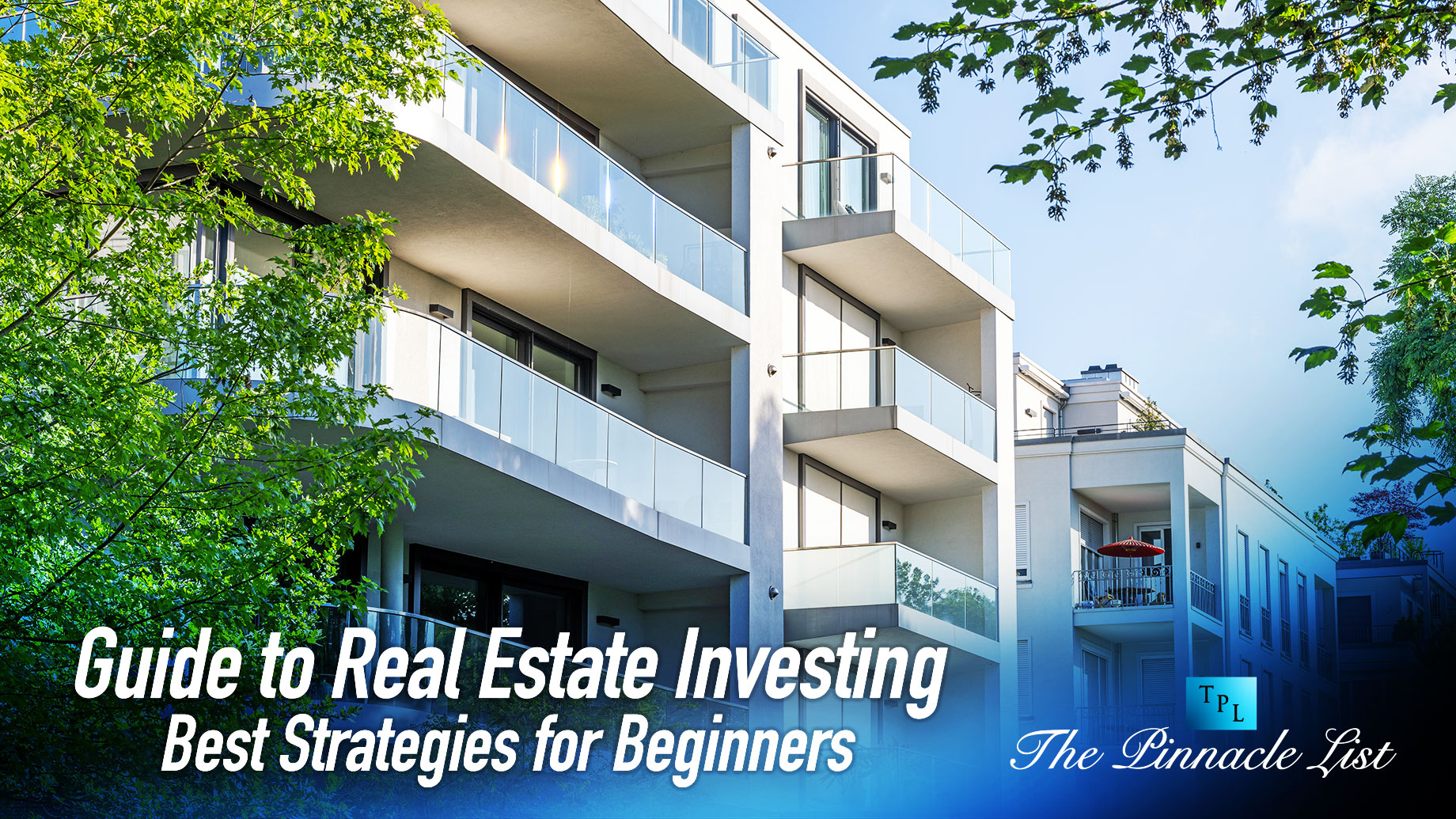
Investing is a great way to preserve and increase wealth, or even build it from scratch when you start small. That’s doable if you invest wisely and build your portfolio with the utmost attention. In order to succeed, your moves must be very well thought out and well-timed.
Over the past few decades, investing in real estate has proven to be profitable. The value of residential and commercial properties has been going up, so real estate is a good way to diversify your investment portfolio. But somehow, it was always thought to be a game for the wealthy, that is, those with a lot of money.
That’s a common misconception because you can enter this lucrative industry even if you do not have much money. Some strategies are a good choice for beginners who have the patience and a great will to learn and follow the market. If you are one of them, check out this guide to real estate investing and the best strategies for newbies.
Buy and Rent
This strategy is most likely your first thought because it is a typical example of investing in real estate. You buy real estate to rent and pay for it with cash or through a mortgage (the most common form of property purchase). You can rent out anything, but single-family homes and apartments within residential complexes are the most sought-after.
By renting out real estate, you take on a new role as a landlord. You can perform this function alone, which is convenient if you have a single rental unit. But if you invest in a multi-family building to rent all its units, managing this property can be time-consuming and stressful. In that case, a much better solution is to hire a property manager.
The advantage of this strategy is that the rent can be a steady income, and you have complete control over your property. As long as the income covers maintenance costs and mortgage payments, you’re good. Also, you own real estate whose value appreciates, so you can always sell it.
On the cons side, what if you fail to rent the property? Then, you do not have a profit to cover your expenses, so you have to pay them out of pocket. Also, this strategy isn’t for investors who do not have enough capital for initial investments, such as a down payment (in the case of a mortgage) and maintenance costs, until they start earning rent.
House Hacking
This is a sub-variant of the previous strategy, which does not necessarily include the purchase of real estate. Simply, you can already own a house and rent rooms you do not use. Or if you do buy a property, you don’t do it exclusively for renting, but you will primarily live in it. If you have a spare room or a space adapted for living (basement or garage), you can furnish it and rent it out.
Here’s some more information and definitions of house hacking:
https://www.dictionary.com/e/tech-science/house-hacking/
This strategy does not require too much money but gives you a chance to earn a profit that you can later use to cover housing costs and reinvest. But as a landlord, you have certain responsibilities and obligations and must be at the tenants’ disposal. Also, living with other people is not always rainbows and butterflies, especially if you do not know them.
Fix and Flip

The market for real estate is very diverse. On the market, you can find fully furnished buildings ready for immediate occupancy but also those that require a lot of investment to make them liveable. The latter is your chance because such properties are usually undervalued. Plus, if you know about house repairs and renovations, you can further reduce this price.
The point of the fix-and-flip strategy is to buy real estate that requires certain investments and sell it at a significantly higher price. You pay a lower initial cost and perform necessary upgrades and strategic renovations. Then you just wait for favorable momentum for sales and thus earn money.
This strategy is rewarding, especially if you have experience in construction and can handle renovations on your own or have a team of experienced contractors who do it for you. Sometimes, you might be lucky enough to find a distressed property in good condition. Then, you do not have to invest more but wait for a good sale moment while your property appreciates.
To successfully handle this strategy, you must be familiar with the real estate market and the construction industry. You should also know the risks of this strategy because the initial investments aren’t small, and the market is very competitive. The renovation costs can be quite high because the material prices sometimes fluctuate daily, and delays are always possible. Keep that in mind when planning this project to avoid a loss of profit.
Real Estate Wholesaling
Wholesaling means putting a distressed property under contract and selling it at market price to interested buyers. It is not a typical resale because you do not buy the property; you just connect buyers and sellers. Your earnings are not the difference between the purchase and sale price but the fee for your “service.”
This strategy suits investors who know the local market and where to find undervalued real estate. Plus, you do not have to invest any money. But you need solid marketing, sales, and negotiation skills to handle sellers and buyers and earn a profit. On this link, read about common risks that wholesalers can face.
Investing in real estate gives you a lot of freedom to place your money. You can push your luck with beginner-friendly strategies, as they are a good guideline for everyone who wants to become a part of the profitable real estate industry.